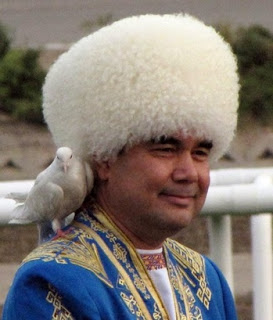One of the world’s biggest producers and exporters of cotton is Uzbekistan where the repressive Government uses a system of forced labour to produce cotton on a massive scale.
For decades, the government of Uzbekistan, under President Islam Karimov, has forced adults and children as young as 10 to pick cotton under harsh conditions each harvest season
Although the younger children are no longer mobilised in large numbers, local administrations routinely send secondary students (15-17-year-olds) to the fields in some districts.
Uzbekistan is one of the largest producers and exporters of cotton in the world, generating an estimated US$1 billion annually through the export of around 850,000 tonnes of cotton every year. Despite these profits, those ordered to pick the cotton remain impoverished as workers are paid little, if anything.
Farmers are ordered to grow cotton or they risk financial penalties or removal from the land they farm.
Each September the cotton harvest begins. Uzbek citizens such as teachers and doctors are forced out of their regular jobs to spend weeks in the fields picking cotton, often in hazardous conditions and without basic equipment.
Each citizen is given a daily quota. Those who fail to meet their targets, or who pick a low quality crop, are reportedly punished by detention, risk losing their jobs or face harassment from employers or the government.
The work is dangerous, people can be left exhausted, suffer from ill-health and malnutrition after weeks of arduous labour. Those working on remote cotton farms are forced to stay in makeshift dormitories in poor conditions with insufficient food and drinking water.
The government of Uzbekistan harass, intimidate and repress citizens who attempt to monitor the cotton harvest.
Not only those sent out to the fields are affected. Businesses are forced to contribute financially if they want to stay open during harvest time. The provision of public services such as healthcare and education is also severely affected during the harvest.
Despite widespread knowledge of these abuses, textile traders and companies have been complicit by buying and selling Uzbek cotton. And although many companies have pledged not to knowingly use Uzbek cotton, it still ends up in the global supply chains and in a lot of finished products. Many governments and international bodies continue to promote trade with Uzbekistan without regard to ongoing human rights abuses.
This is the evil and murderous leader of this little known country.
For decades, the government of Uzbekistan, under President Islam Karimov, has forced adults and children as young as 10 to pick cotton under harsh conditions each harvest season
Although the younger children are no longer mobilised in large numbers, local administrations routinely send secondary students (15-17-year-olds) to the fields in some districts.
Uzbekistan is one of the largest producers and exporters of cotton in the world, generating an estimated US$1 billion annually through the export of around 850,000 tonnes of cotton every year. Despite these profits, those ordered to pick the cotton remain impoverished as workers are paid little, if anything.
Farmers are ordered to grow cotton or they risk financial penalties or removal from the land they farm.
Each September the cotton harvest begins. Uzbek citizens such as teachers and doctors are forced out of their regular jobs to spend weeks in the fields picking cotton, often in hazardous conditions and without basic equipment.
Each citizen is given a daily quota. Those who fail to meet their targets, or who pick a low quality crop, are reportedly punished by detention, risk losing their jobs or face harassment from employers or the government.
The work is dangerous, people can be left exhausted, suffer from ill-health and malnutrition after weeks of arduous labour. Those working on remote cotton farms are forced to stay in makeshift dormitories in poor conditions with insufficient food and drinking water.
The government of Uzbekistan harass, intimidate and repress citizens who attempt to monitor the cotton harvest.
Not only those sent out to the fields are affected. Businesses are forced to contribute financially if they want to stay open during harvest time. The provision of public services such as healthcare and education is also severely affected during the harvest.
Despite widespread knowledge of these abuses, textile traders and companies have been complicit by buying and selling Uzbek cotton. And although many companies have pledged not to knowingly use Uzbek cotton, it still ends up in the global supply chains and in a lot of finished products. Many governments and international bodies continue to promote trade with Uzbekistan without regard to ongoing human rights abuses.
This is the evil and murderous leader of this little known country.



No comments:
Post a Comment